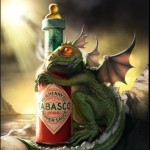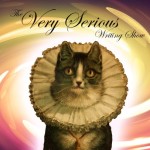Home Page › Forums › Fiction Writing › Genre-Writing › Fantasy › Quality Fantasy Characters
Tagged: characters, Fantasy
- This topic has 10 replies, 3 voices, and was last updated 9 years, 10 months ago by
 Kate Flournoy.
Kate Flournoy.
-
AuthorPosts
-
August 19, 2015 at 12:16 pm #4513
Hello everybody! I write fantasy books, and I am needing some tips on how to create a well-rounded fantasy character that has both flaws and strengths. I can do this to some extent, but I need a bit more help in this area.
August 19, 2015 at 3:22 pm #4517Hey! Another fantasy author! Join the club.
Do you mean specifically for fantasy, or for any character in any genre? Is there anything about writing a fantasy character you think should be different than writing any of the other genres? (Despite the fact that they can use magic, some of the time).
I’d love to be in this discussion with you. Thanks for starting it!August 19, 2015 at 4:27 pm #4521Kate Flournoy –
Thanks for getting into the discussion! I almost always write either historical fiction (set in medieval periods) or fantasy. That is basically what I am looking for. 🙂August 19, 2015 at 7:48 pm #4531Okay… it begins.
Specifically for fantasy and medieval stories: I like what you can do with these characters because of their setting. Think of all the societal issues— all the conflicting interests. The cruel barons who rely upon their serfs to work their land, the serfs who cannot leave him, the king to whom the baron answers, the advisors to whom the king listens… there is so much potential here for deep societal and political themes. What does this have to do with characters?
The character will be on one side or the other. He will hate and love in this context. He will be discontent in this context… or too complacent; too willing to be trampled on and toothless simply because he does not want to rock the boat.
Is he a king’s son? Maybe he hates it— maybe he has a friend among the serfs, and knows how unjustly they are treated, and wishes he were one of them so he could help them without being accused of condescension or meddling where it does not concern him. And maybe his friend sees it the other way around. Maybe he hates that he is a serf, and wishes he were a prince so he could do something about the suffering in a place of influence.
Fantasy and medieval characters will usually be accustomed to war and bloodshed and conflict. They will be hard and efficient when it comes to war, if they have been trained properly, or if they have not, they will want to be. Every man will learn to defend himself as a very small lad, and every woman will learn to manage the house while the man is away. Often the women will learn to defend themselves as well, even go into battle when occasion demands.
Mothers will be fearful for their sons’ welfare, and depending on their temperament will either teach themselves to be hard and unfeeling on the outside, masking their pain, or will attach themselves hard and fast to their sons because they know it will be too late to have a meaningful relationship with them if, or when, the son falls in battle.
Sons will be less attached to their mothers, because from the moment they could walk their fathers took them in hand and made them everything a soldier should be, and they had less time with their mothers and sisters. Or maybe they take it the other way around— maybe they value what little time they have with their womenfolk as priceless, and love them and cherish them carefully because they could so easily lose them.Now I just loaded you off with a lot of material that may or may not have relevance to what you wanted to discuss. Wasn’t that nice of me? You pick one of these topics I brought up, if any of them suit you, and we’ll discuss it in the context of how we can make a character well rounded using what we know of the general feel of the world. The medieval world, of course. Or the fantasy world. Whichever one— they do not often differ too greatly.
😀August 19, 2015 at 8:48 pm #4534Very helpful! These suggestions have made me think about some potential ideas regarding the characters’ position in society and all the problems they might have! Thank you so much!
August 20, 2015 at 9:08 am #4547No problem! So glad I was able to be of some assistance. One of my very favorite things about writing, if not my most favorite, is designing and filling out my characters. Nothing compares to getting to know all these fantastic different personalities, and talk with them, and have them live inside you. Nothing.
August 20, 2015 at 10:41 am #4550Kate is genius.
So I’ll let her do that thing, she got the important stuff.
BUT, left field is wide open, for something I always like talking about when it comes to characters (all the happy), CLICHES! I love cliches. Cliches are wonderful things. Really.
Granted, this /might/ end up being a slight sidetrack from the point. Perhaps information has a different way of reaching my brain than other people…I’m fairly certain that this covers the idea of what you want to know though. So…we’ll go with it. See what happens. (If it doesn’t happen to be relevant, you should, of course, belittle me soundly, tell me to start my own topic, and command me to not reproduce and spread the plague of my genes. That is right and proper civilized behavior.)
The biggest difficulty that I personally see when developing characters, is that cliche thing I’m excited about. Let’s use fantasy characters as an example, I dunno, just because.
Fantasy characters follow basic guidelines. These are beneficially provided by Kate. (Please note, the following post is by no means meant to slight Kate in any way, her answer, as I said, is most perfect.) However, despite there being guidelines…that doesn’t mean the guidelines are gonna help. (They’re mean that way.) The guidelines bring you to a certain point: the realisticness of a character’s /situation/. That’s a good and right thing to have, I hope you do, and I know of many books where that’s all the characters have: Realistic situations, realistic thoughts, realistic personalities, etc…
All good? Smiles all ’round?
Ha, no. PSYCH!
Because actually…that’s not true. Lemme ‘splain: Imagine Jim from a Fantasy book “DRAGONS FOREVER”, and imagine Bob from another fantasy book, “I LOVE GIANT SPIDERS”. Let’s say Jim is a peasant, and he dreams of being a brave knight, whom everyone will look up to. Let’s say this dream is written believably and all that. Now let’s say Bob is a servant in the king’s palace, and /his/ dream is to go and kill giant spiders, and win the heart of the kingdom. And let’s say that /that/ is written well. All good?
Nope. Well…maybe. It’s…oookkaaaayyy, but that’s because we’re assuming these characters are written well. (Not to say I do not assume the same of yours.)
What do you notice about Jim and Bob? Different ideals? Different motivation? At first glance…yes. Jim wants to be a knight who would defend his people against dragons. Bob wants to be one of the fabled Spider Slayers, and win honor and maybe some syrup (it’s a Canadian fantasy). But look a little deeper: Even assuming that these characters are well written, what are they going to be like? I think if you read the books at the same time, you’d begin to wonder, “Wait…which one is Jim, and which one is Bob?”
You see, the problem lies in that though both /realistic/ they are not /different/ characters. That’s the problem.
The guidelines are great, because they give you an /idea/ but they can’t be relied upon. You have to take and twist them to make them your own. So your character is a serf who wants to be a knight? Sounds familiar. Well…what if he wants to because his mother will only be proud of him if he does? OK, that’s still familiar…well, what if he actually doesn’t care tuppence about what mom thinks, and wants to become someone of authority so he can pay her back?
I should have thought that example out first…maybe that can be a villain character…
OK, but you get the idea. Cliches are excellent, because they’re fun to mess with. You could have a story that is 90% cliche, but if you made that last 10% a twist on the cliche…well, you’re golden. That’s what the audience will care about, because /that’s/ your story.
I could go on into how that flows into the theme, values, and all that, but you probably get the idea, and my fingers are sore.
If this is just blah blah, already heard it, and my examples stink, you have permission to yank the soapbox from under my feet and burn it. I like fiiiiiiiire.
August 20, 2015 at 12:24 pm #4555Thanks Ezra! I’ll try to use clichés in my writing as well, if it works! Thanks again!
August 20, 2015 at 12:46 pm #4557Don’t be afraid to smash me if you don’t agree with something I post, Ezra. I mean, really. I can take a fair amount of criticism. It’s part of being a writer. Just don’t complain if I smash you back. Haha!
You gave the next stage of the argument. I really can’t think of anything to add to it. You took what I gave as ‘guidelines’ and applied it to developing the characters and actually using it with their own unique personality. Wonderful. Wonderful. I couldn’t agree more.And yes, as a side note, I do believe in giving characters their own unique personality. See ‘The Perfect Protagonist’ topic for details.
August 20, 2015 at 1:02 pm #4559“Don’t be afraid to smash me if you don’t agree with something I post, Ezra.”
Oh trust me, I won’t. 😛 But I wasn’t here, which is why I felt a modicum of informing you of that fact was probably necessary. Or something.
-
This reply was modified 9 years, 10 months ago by
 Ezra Wilkinson.
Ezra Wilkinson.
August 20, 2015 at 7:25 pm #4621Thanks. I appreciate it. Just for future reference, though.
-
This reply was modified 9 years, 10 months ago by
-
AuthorPosts
- You must be logged in to reply to this topic.

